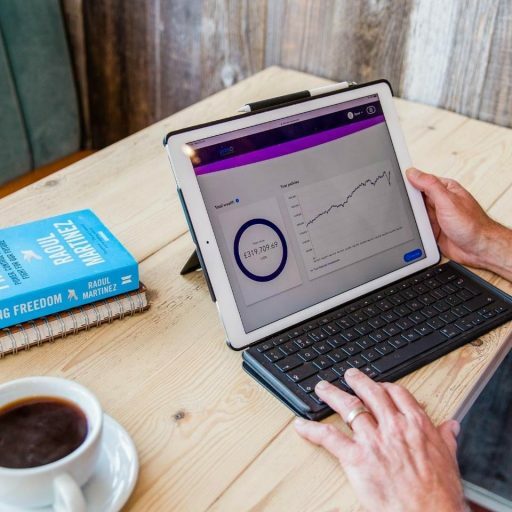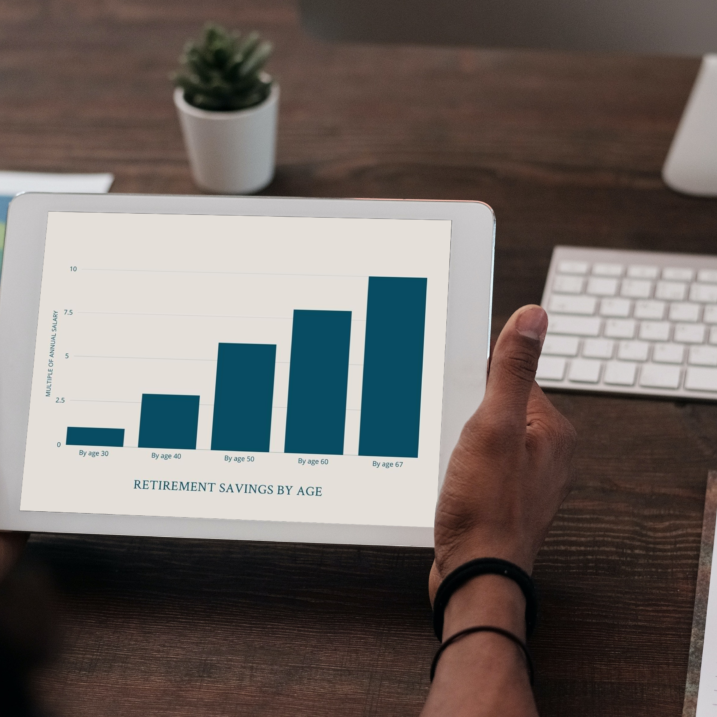Let’s face it: no one enjoys paying tax. Fortunately, there are several legitimate ways to avoid paying tax on your pension (without stepping into tax avoidance territory). Ultimately, these come down to maximising your use of your 25% tax-free cash and taking full advantage of your personal allowance.
Of course, there are plenty of rules and regulations that you need to keep in mind. The world of tax is a complicated one, and the last thing you want is to end up on the wrong side of the law. If you’re ever unsure, we recommend you get in touch with a financial advisor or speak to your accountant.
In the meantime, we’ve created a guide on the ways to avoid paying tax on your pension in the UK.
How much can a pensioner earn before they pay tax UK?
You can take up to 25% of your personal pension pot as tax-free cash, either as income or as a lump sum. After that pensioners can use their personal allowance, which is currently £12,570 for 2021/22: any income over and above this will be classed as taxable at your marginal rate.
This is very important to remember as your pension income is classed as ADDITIONAL income. That means it could easily push you into a higher threshold of tax; you could end up throwing 40% away if you do choose to take the remaining 75% of your pension as income. And nobody wants that.
It is, however, possible to blend your tax-free cash from your pension with your income in order to reduce your tax liability. For example, if you’re still working and want to access your pension, you might choose to take your tax-free cash in several smaller lump sums mixed with the taxable part of your pension, spread over multiple tax years, rather than take your whole tax-free lump sum in one go and be liable for tax on everything you take from that point on.
Saying that, we strongly recommend you speak to a financial advisor if you want to combine your tax-free pension and taxable income effectively; otherwise, you could quickly find yourself in a tricky (far from fruitful) situation.
Do pensioners have to pay tax?
Pensioners are subject to the same income tax rules as those of working age in the UK. As a pensioner, both state and private pensions are counted as taxable income.
This can sometimes come as a surprise, and it’s one of the many reasons why we advocate for keeping your pension fund safely tucked away for as long as possible instead of cashing in your drawdown pension. This is because the moment you take your investment out of a pension pot, it loses all of the tax-efficient benefits that it has been soaking up. Not only will it stop accumulating as much, but it will also start to lose value.
As we’ve mentioned, once you’ve taken your 25% tax-free cash, everything else you take from your pension will be taxed at your highest amount. The investment that you cash in will be added to your overall income: in the eyes of the taxman – once you pass £50,271 – this could result in your landing in the highest rate tax bracket.
For an added hit, if you plan to put your investment into your bank account, you will experience limited interest rates; especially in comparison to the benefits available with a pension investment. We explain this (and much more) in finer detail on our Pension Drawdown Advice page. Even as a pensioner, you could find yourself on a hamster wheel of tax implications… Taxed for taking the money out in the first place, and then taxed on any money earned.
There’s also the added complication of inheritance tax to consider. Money held within a pension is generally exempt from inheritance tax, but once you withdraw it, it’s deemed part of your estate and could be liable for inheritance tax at 40%.
The table below shows the tax rates you pay in each band if you have a standard Personal Allowance of £12,570.
(Please note: Income tax bands are different if you live in Scotland.)
| Band | Taxable income | Tax rate |
| Personal Allowance | Up to £12,570 | 0% |
| Basic rate | £12,571 to £50,270 | 20% |
| Higher rate | £50,271 to £150,000 | 40% |
| Additional rate | over £150,000 | 45% |
You can also see the rates and bands without the Personal Allowance. Keep in mind that you do not get a Personal Allowance on taxable income over £125,140.
So, let’s break it down: the current state pension is £179.60 a week which equates to £9339.20 a year. Assuming you’re eligible for the full state pension, you can earn a further £3230.80 income from different sources before you start paying tax: this could include your personal pension, workplace pension, rental income, salary or savings accounts (to name a few).
In addition, if you’re married there may be ways for you to utilise your spouse’s personal allowance to offset your own tax liability. It isn’t a straightforward process (is it ever when it comes to tax?) and so we strongly encourage you to speak to your accountant before relying on this.
How much pension can I draw down without paying tax?
Current rules allow you to take 25% of your pension tax-free. This can be taken as a lump sum or as drawdown income. You can do this from the moment you hit 55 (57 from 6 April 2028), and it is one way to take advantage of a tax-free cash chunk.
There’s a clear attraction: this tax-free lump sum can be used to wipe a debt slate clean, leaving you with less outgoings as you move into retirement. But, don’t forget that once you’ve taken your 25% tax-free cash, you’ll pay tax on your pension as if it were income. If you’re teetering on the edge of two tax codes, this additional income could push you into a higher tax bracket in a heartbeat. Believe us when we say that the taxman won’t miss it.
Of course, you do also have your personal tax allowance of £12,570 a year to use as well: a financial advisor can help you build this into a strategic retirement plan. They will also help you figure out whether you can live sustainably once you have drawn down your pension, and whether you are even eligible to do so in the first place (for example, with defined benefit schemes it isn’t possible).
You can find out more about pension drawdowns in this detailed guide.
How much tax will I pay if I cash in my pension?
If you decide to cash in your entire pension pot, the first 25% is tax-free, the rest is classed as taxable income. The amount of tax you will pay will depend on your earnings for the tax year in which you take the pension.
Although it can feel like an exciting, almost unmissable prospect (who wouldn’t want that hefty chunk of money to splash wherever they fancied?), we beg you not to get too carried away. This short-term financial gain will more often than not lead to major long-term loss. After all, if the income from the taxable 75% of your pension pushes you into a higher tax bracket, then you’ll pay a higher tax rate on it: this could end up as high as 40%.
We’ve seen far too many people make this mistake when calculating how much tax they think they’ll pay to cash in their entire pension pot.
They think as a basic rate taxpayer, they’ll only pay 20% tax on the taxable part of their pension pot, yet the income from the cashed-in pension pushes them into higher-rate taxpayer territory and they end up paying 40% tax on the bulk of their pension pot.
That reduction is enormous; hard-earned money that they could have enjoyed in their golden years. They then find themselves in a pension pot tax trap, losing unnecessary money just because they thought that cashing in their property and reinvesting it in tax draining sources would work in their favour.
Spoiler alert: it never does.
How to calculate tax on pension income
You can use a pension tax calculator to give you a guide on how much tax you will pay on your pension income, although you need to take this with a pinch of salt. You cannot rely on a tax calculator to make your final decision, as it won’t provide you with any other options to maximise your tax-free savings: it can only work with the information that is right there in front of them. Instead, speak to a financial advisor; this is the only way you can get reliable and bespoke advice built around your financial future.
This is particularly important if you have multiple income streams in retirement, as an independent financial advisor can help you build a sustainable and long-term financial plan that is fully aligned with your goals. In this scenario, we also recommend that you speak directly with your accountant.
Work out how you take your 25% tax-free cash
If you want to take out your 25% tax-free cash from your pension, you’ll need to contact your pension scheme directly.
If you want to access your pension flexibly through Pension drawdown,
- Find out if your current scheme offers a flexible access drawdown option, some older schemes don’t. If your scheme doesn’t offer pension drawdown then you’ll need to transfer your pension to a scheme that does.
- If your pension scheme allows pension drawdown then you’ll be asked to fill in some forms and provide proof of identity before any money is paid to you.
Before you do so, ask yourself whether this is something you really want to do. If you do take a lump sum from your defined contribution pension it will reduce the amount you have invested in your pension pot, so there’s less money in your investments and you will have less to last you through retirement.
Therefore, if you don’t have an immediate need for the money you may be better off leaving it invested in your pension. There are several reasons for this; for starters, if you opt to take your pension lump sum and leave it in cash or put it in a standard savings account, your money will likely be eroded by inflation. Talk to your financial advisor about ring-fencing money in a low-risk investment if you’re worried about risk.
Another thing you should be aware of (especially if you’re concerned about inheritance tax) is that pensions sit outside your estate and therefore aren’t subject to inheritance tax like the rest of your assets. Subsequently, any money you take out of your pension immediately becomes part of your estate and liable for inheritance tax at 40%. Keep in mind that you can only take your 25% tax-free cash ONCE – it doesn’t reset every single year. In an ideal world, you would only use it if you really, really had to.
You can learn more about Inheritance Tax Rules here.
Use your personal tax allowance
As it currently stands (in 2021), you have a personal tax allowance of £12,570 a year to utilise.
Current pension rules allow you to access your pension at 55 and whilst you’re still working, and whilst it might be tempting to do this, remember that if you’ve already used your tax free allowance from your primary income, you’re not going to have any left to use against your pension income.
Remember, your pension pot is there primarily to support you through retirement if and when you’re no longer supporting yourself through working income. Don’t be tempted to act like a lottery winner and splash all your cash before you have a solid retirement plan in place.
If you wait until you stop working to access your pension, you’ll have your whole personal tax allowance to use up before you start paying tax.
Be aware that when you first access your pension or take a lump sum from your pension you may be given an Emergency tax code. If this happens you may pay more tax than required. If this happens you’ll need to claim it back from HMRC. You can learn more about emergency tax (and how to get it back) here.
Pension lump sum tax calculator
If you choose to take a lump sum from your pension, you need to understand your unique tax implications first. In particular, if you’re accessing your pension at 55 and still working, as a higher rate taxpayer you could end up paying 40% tax on any lump sum you withdraw from your pension pot.
A pension lump sum calculator is a good way to get an initial feel of what your tax implications could be: but, these should only be seen as a first step. While calculators provide a guide, they should never replace professional advice. Professional advice will often save you money in the long run, always talk to a Financial Adviser and/or your accountant first.
RELATED: 5 OF THE BEST PENSION LUMP SUM TAX CALCULATORS
Avoid paying tax on my pension UK?
Pensions are the most tax-efficient investment you’ll find in the UK. Stick within the maximum contribution rules and not only do you not pay tax on your contributions or capital gains on any increase in value, but it is also possible to access your money without ever paying tax on it.
That’s not to say that income from your pension is tax-free, pension income is classed as taxable income in the UK, so you need to access it wisely to avoid paying tax.
Using your tax-free cash allowance to avoid paying tax on your pension
The first way to avoid paying tax on your pension in the UK is to take advantage of your 25% tax-free cash. The first 25% of your pension is always tax-free, but this allowance is a one-time offer, it doesn’t reset annually.
You can find out more about the ways you can take your tax-free cash in our pension lump sum guide
Once you’ve exceeded the 25% tax-free allowance, you’ll be liable for tax on everything else you take. That’s when you move onto the second way to avoid paying tax on your pension…
Using your personal allowance to avoid paying tax on your pension
The second way to avoid paying tax on your pension is to use your personal tax allowance and stick within the nil-rate band. Each year this will reset and it generally increases year-on-year. Each year you’ll be able to earn a certain amount of money, whether through paid work or pension income, without paying tax.
Find out more about income tax and your current personal allowance rate from the government website.
Keeping your money invested to avoid paying tax on your pension
The third way to avoid paying tax on your pension might not sound quite so appealing but it is to simply not access your pension and keep your money invested.
Pensions are one of the most tax-efficient investment vehicles. You aren’t liable for capital gains on any increase in value and you aren’t liable for income tax unless you withdraw money from it.
If you don’t access your pension, you won’t pay tax on it (unless you’re in excess of the lifetime allowance past your 75th birthday). Whilst the idea of keeping your money invested might not sound too appealing from an income point of view, pensions do provide a tax-efficient way to pass on wealth and are an effective part of legacy planning.
If your estate is likely to exceed the inheritance tax threshold, you can help your family avoid a large inheritance tax bill by using your pension as a way of passing on wealth. Find out more about what happens to your pension when you die.
Can I take my pension at 55 and still work?
If you have a defined contribution pension there are a number of ways that you can take your private pension and still work. You can opt to take it in a single lump sum or you can take smaller cash lump sums.
It’s worth noting that if you have a guaranteed pension amount in the form of a defined benefit pension then the rules are different. In these cases, you’ll need to check with your pension scheme administrator to find out what applies to you.
Whatever your position, be aware that any pension income beyond your 25% tax-free cash will be classed as taxable income. This could push you into a higher tax bracket and you could, as a result, lose a big chunk of money.
While it might seem like a great idea to have money from your pension as well as working, you should question whether you actually need it. Your pension is there to provide an income in retirement. When it’s gone it’s gone. Don’t be tempted to spend it too early.
RELATED: CAN I TAKE A PRIVATE PENSION AND STILL WORK?
How much tax will I pay on my pension if I am still working
The amount of tax you will pay on your pension if you are still working depends on a number of factors: first of all, how much do you earn? It will also take into account whether you are already taking your tax-free cash, whether you are taking your personal allowance and what tax rate you are on.
Unlike national insurance, which you stop paying when you reach State Pension Age, you will pay income tax even after you retire – regardless of your age, even if that income is from a pension. Therefore any money you withdraw from your pension (whether or not you are also working) will count as income once you have surpassed your tax free and personal allowance.
Consider if this is something you need to do, or if you would be in a better position leaving your pension invested (and growing!). That extra burst of income may feel inviting right now, but how much better would it feel when you have more money to facilitate a stress-free, luxury retirement in your later years?
Need advice about maximising your tax free cash?
If you need advice on how and whether to take your tax-free lump sum or how to make sure that your investments are working as hard (and are as tax-efficient) as possible, we’d be happy to help. Schedule a free call with one of our Independent Pension Advisers today.



